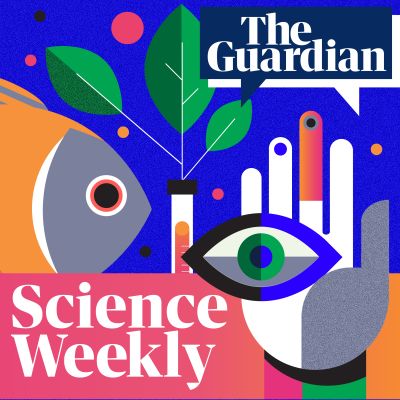Twice a week, the Guardian brings you the latest science and environment news
https://www.theguardian.com/science/series/science
Gesamtlänge aller Episoden: 12 days 12 hours 50 minutes
Who really wins if the Enhanced Games go ahead?
Billed as a rival to the Olympic Games, the Enhanced Games, set to take place in 2025, is a sporting event with a difference; athletes will be allowed to dope. Ian Sample talks to chief sports writer Barney Ronay about where the idea came from and how it’s being sold as an anti-establishment underdog, and to Dr Peter Angell about what these usually banned substances are, and what they could do to athletes’ bodies
Soundscape ecology: a window into a disappearing world
Guardian biodiversity reporter Phoebe Weston tells Madeleine Finlay about her visit to Monks Wood in Cambridgeshire, where ecologist Richard Broughton has witnessed the decline of the marsh tit population over 22 years, and has heard the impact on the wood’s soundscape
The senior Swiss women who went to court over climate change, and won
The European Court of Human Rights has ruled that Switzerland’s weak climate policy had violated the rights of a group of older Swiss women to family life. Ian Sample and Ajit Niranjan discuss why the women brought the case and what the ruling could mean for climate policy
Remembering physicist Peter Higgs
The Nobel prize-winning British physicist Peter Higgs has died aged 94. Higgs theorised the existence of the Higgs boson particle, part of an attempt to explain why the building blocks of the universe have mass, five decades before its existence was confirmed in 2012. Ian Sample and Madeleine Finlay look back on the life and legacy of a giant of science.
Horny tortoises and solar mysteries: what scientists can learn from a total eclipse
For scientists a total solar eclipse can be a fleeting chance to understand something deeper about their field of research. Madeleine Finlay meets professors Huw Morgan and Adam Hartstone-Rose to find out what they hoped to learn from 8 April’s four minutes of darkness
The science of ‘weird shit’: why we believe in fate, ghosts and conspiracy theories
Psychologist Chris French has spent decades studying paranormal claims and mysterious experiences, from seemingly-impossible coincidences to paintings that purportedly predict the future. Ian Sample sits down with French to explore why so many of us end up believing in, what he terms, ‘weird shit’, and what we can learn from understanding why we’re drawn to mysterious and mystic phenomena
Hypermobility: a blessing or a curse?
Being more flexible than the average person can have its advantages, from being great at games such as Limbo to feeling smug in yoga class. But researchers are coming to understand that being hypermobile can also be linked to pain in later life, anxiety, and even long Covid. Madeleine Finlay hears from the science correspondent Linda Geddes about her experience of hypermobility, and finds out what might be behind its link to mental and physical health
The virus that infects almost everyone, and its link to cancer and MS
On 28 March it is the 60th anniversary of the discovery of Epstein-Barr virus, the most common viral infection in humans. The virus was first discovered in association with a rare type of cancer located in Africa, but is now understood to be implicated in 1% of cancers, as well as the autoimmune disease multiple sclerosis...
What could a severe solar storm do to Earth, and are we prepared?
The sun is currently ramping up to hit the peak of its 11-year activity cycle. In the past few days, powerful solar eruptions have sent a stream of particles towards Earth which are set to produce spectacular auroras in both hemispheres. But these kinds of geomagnetic storms can also have less appealing consequences...
Havana syndrome: will we ever understand what happened?
In late 2016, US officials in Cuba’s capital began experiencing a mysterious and often debilitating set of symptoms that came to be known as Havana syndrome. Ian Sample speaks to the Guardian’s Julian Borger and consultant neurologist Prof Jon Stone about what could be behind the condition
